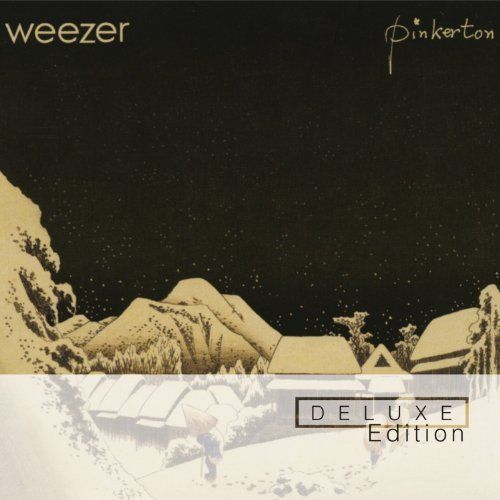Pinkerton will go down for a lot of things, but it will most likely be remembered for being the beginning of the end for a once universally-praised band, leaving many music fans to ask: “What if?”. What if critics had not panned Pinkerton it upon release, and the band continued making music in this direction? Or: what if Matt Sharpe had not left the band after a falling-out with Rivers Cuomo? Simply put, Weezer’s quick departure from their Pinkerton-era style has made this album one of the biggest teases of all time. While at the time people might not have appreciated it for what it was, Pinkerton would end up being considered one of the best albums of the 90’s.
So what exactly makes Pinkerton so legendary? While The Blue Album had lyrics that most young adults could relate to, the themes always stayed fairly light. Pinkerton explores the tried-and-true frustration that all experience at lease once in their lifetime: love. But instead of making a clichéd interpretation of it, it’s there in its entirety, the good, the bad, and the fucked-up. It’s wonderful, it’s exhausting, it’s painful. But most importantly, it’s brutally honest. Pinkerton is best described as reading someone’s diary. You know the person really well, and now you are getting this insight to their thoughts and emotions. You know you shouldn’t be reading it, but you can’t look away. You almost start to feel embarrassed for yourself as you uncover these painful experiences.
Rivers essentially wrote an entire album about his life. Now, obviously most artists write songs that are based on their life, or at least shaped by their experiences. But never has there been seen such a painful record where the artist literally exposes their themselves to everyone. It’s no wonder that years later when asked what he felt about the album, Rivers would say that the experience of releasing the album was like getting drunk at a party, spilling his guts to everyone, people laughing and then feeling embarrassed and regretful the following day. When you put so much on the line, something so personal, it’s going to hurt that much more when people don’t respond well to it. And so this is the story of Pinkerton. It’s one of the reasons Weezer would never be the same again. It seems bittersweet and a bit ironic that the gatekeepers of opinion (critics) would be so wrong about this album back during its release, and will now finally be making up for it by giving it its due.
Almost everyone experiences heartache at one time or another; it’s why this album succeeds so well. While it might be fascinating to listen to an artist spill their guts on record, it becomes so much more when the album becomes about you. “Why Bother?” in particular comes to mind. The sense of hopelessness one might feel when striking out so many times or coming out of a nasty break up. Or how about the moment when someone realizes they are done being “over dating” and are ready to hit the scene again, as presented on “The Good Life”? This album chronicles the entire process one suffers through just at the hopes of finding a companion. However relatable this album is as a whole, not every element of it is.
The other side to it is experiencing Rivers insane psyche. Similar to Kanye West’s My Beautiful Dark Twisted Fantasy, this album is very much about the twisted reality that the artist is willing to share. Down to the moment when Rivers declares that “we were as good as married in my mind, but married in my mind is no good” or “you think I’m some kind of freak” – this album explores a very desperate person. Someone so desperate that he’s afraid to leave someone he dislikes, for having a stronger fear of being alone.
Pinkerton was one of those albums disregarded on release because it wasn’t catchy or infectious the same way its predecessor was. People expected a set sound from them, and in some ways, maybe Rivers’ relationship problems turned people off at the time. But the best bands are bands that have the balls to change their sound drastically from one album to the next, even after finding success. Radiohead, for example, went from the The Bends to OK Computer, then, despite hitting #1 on charts worldwide, on to Kid A. The transformation from The Blue Album to Pinkerton can be seen as just as drastic.
This all bring me back to thinking “What if?”. Fans still salivate at the thought of: what if Songs from the Black Hole (Weezer’s unfinished space themed rock opera and the original follow-up to The Blue Album) had also been made? What if the band continued making the same kind of music, instead of veering off into generic/formulaic pop music? Of course hindsight is always twenty-twenty, and maybe it’s foolish to wonder what could have been. Maybe their destiny was always to go on to make albums like Make Believe and Raditude. Ultimately, the legacy Pinkerton leaves behind is it being one of the most emotional and raw albums ever made. It’s an album that many can relate to, even if you’re not on the same level of crazy as Rivers was back then. And when most pop music today is filled with personas and formulaic topics, Pinkerton stands out for being brutally honest, and for reminding us that sometimes girls fucking suck.

